第64章
And we had other amusements.I made some fiddles out of that peculiar Australian wood which splits into thin strips.The strings of the bow we made out of my own hair; whilst those for the instrument itself were obtained from the dried intestines of the native wild-cat.
We lined the hut with the bark of the paper-tree, which had the appearance of a reddish-brown drapery.
The native women made us mats out of the wild flax; and the girls themselves decorated their room daily with beautiful flowers, chiefly lilies.They also busied themselves in making garments of various kinds from opossum skins.They even made some sort of costume for me, but I could not wear it on account of the irritation it caused.
The natives would go miles to get fruit for the girls--wild figs, and a kind of nut about the size of a walnut, which, when ripe, was filled with a delicious substance looking and tasting like raspberry jam.There was also a queer kind of apple which grew upon creepers in the sand, and of which we ate only the outer part raw, cooking the large kernel which is found inside.I do not know the scientific name of any of these things.
I often asked the girls whether they had altogether despaired in the clutches of the cannibal chief; and they told me that although they often attempted to take their own lives, yet they had intervals of bright hope--so strong is the optimism of youth.My apparition, they told me, seemed like a dream to them.
The natives, of course, were constantly moving their camp from place to place, leaving us alone for weeks at a time; but we kept pretty stationary, and were visited by other friendly tribes, whom we entertained (in accordance with my consistent policy) with songs, plays, recitations, and acrobatic performances.
In these latter Bruno took a great part, and nothing delighted the blacks more than to see him put his nose on the ground and go head over heels time after time with great gravity and persistency.But the effect of Bruno's many tricks faded into the veriest insignificance beside that produced by his bark.You must understand that the native dogs do not bark at all, but simply give vent to a melancholy howl, not unlike that of the hyena, I believe.
Bruno's bark, be it said, has even turned the tide of battle, for he was always in the wars in the most literal sense of the phrase.
These things, combined with his great abilities as a hunter, often prompted the blacks to put in a demand that Bruno should be made over to them altogether.Now, this request was both awkward and inconvenient to answer; but I got out of it by telling them--since they believed in a curious kind of metempsychosis--that Bruno was MY BROTHER, whose soul and being he possessed! His bark, Ipretended, was a perfectly intelligible language, and this they believed the more readily when they saw me speak to the dog and ask him to do various things, such as fetching and carrying; tumbling, walking on his hind-legs, &c.&c.But even this argument did not suffice to overcome the covetousness of some tribes, and I was then obliged to assure them confidentially that he was a relative of the Sun, and therefore if I parted with him he would bring all manner of most dreadful curses down upon his new owner or owners.
Whenever we went rambling I had to keep Bruno as near me as possible, because we sometimes came across natives whose first impulse, not knowing that he was a dog, was to spear him.Without doubt the many cross-breeds between Bruno and the native dogs will yet be found by Australian explorers.
Our hut was about three-quarters of a mile away from the sea, and in the morning the very first thing the girls and I did was to go down to the beach arm-in-arm and have a delicious swim.
They very soon became expert swimmers, by the way, under my tuition.Frequently I would go out spearing and netting fish, my principal captures being mullet.We nearly always had fish of some sort for breakfast, including shell-fish; and we would send the women long distances for wild honey.Water was the only liquid we drank at breakfast, and with it Yamba served a very appetising dish of lily-buds and roots.We used to steam the wild rice--which Ifound growing almost everywhere, but never more than two feet high--in primitive ovens, which were merely adapted ants' nests.The material that formed these nests, we utilised as flooring for our house.We occasionally received quantities of wild figs from the inland natives in exchange for shell and other ornaments which they did not possess.I also discovered a cereal very like barley, which I ground up and made into cakes.The girls never attempted to cook anything, there being no civilised appliances of any kind.
Food was never boiled.
From all this you would gather that we were as happy as civilised beings could possibly be under the circumstances.Nevertheless--and my heart aches as I recall those times--we had periodical fits of despondency, which filled us with acute and intolerable agony.
These periods came with curious regularity almost once a week.At such times I at once instituted sports, such as swimming matches, races on the beach, swings, and acrobatic performances on the horizontal bars.Also Shakespearian plays, songs (the girls taught me most of Moore's melodies), and recitations both grave and gay.